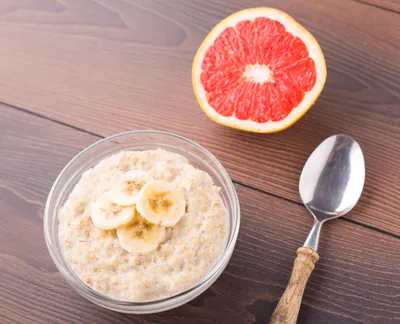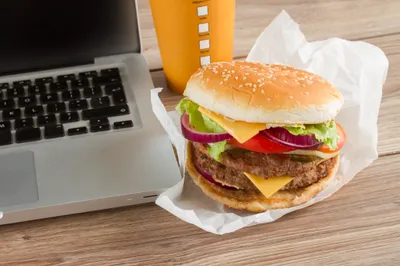It seems we are overwhelmed by media messages touting the latest health kick or super food that will lead us to longer lives and leaner bods, but has it really made a difference to our health? Rates of chronic disease, obesity, and mental illness appear to be increasing even with all we know about health and wellness. Perhaps the messages have gotten old? Perhaps we aren’t paying attention to them as we once did? Or perhaps we are just too busy and stressed out to care anymore? For those who are tired of hearing the same old thing and are craving a new perspective on health, here are ten (tongue in cheek) very simple steps to obtaining the unhealthiest (and possibly worst) body ever…
Step 1: Be Sure to Drink Your Calories
To obtain a flabby physique and spike that blood sugar all one needs to do is reach for the sodas, juices, sports drinks, or any beverage that contains sugar. The average sugary beverage contains about 30-grams (that’s roughly 8-teaspoons of sugar in a can of soda). This may include fruit juices, energy drinks and even our favorite healthier options like almond and soy milk (although the sugar content may be much less). Research has been very clear that a diet high in sugar can increase the risk of chronic diseases like diabetes, cancer, and heart disease…not to mention obesity.
Health professionals suggest drinking more water than anything else, but that would only lead to hydration and greater feelings of wellbeing and vitality. The best way to ensure illness is focusing on a diet high in sugar. To be sure beverages have sugar in them, check out the nutritional label. That label will note the grams of sugar in each drink or food item. Remember, hard core flab can easily be achieved and maintained if one makes the choice of soda over water!
Step 2: Skip Breakfast
If one is serious about achieving that layer of fat combined with feelings of lethargy and mental fogginess, skipping breakfast may be another important step to consider. Although recent research on the influence of breakfast on weight maintenance has suggested that skipping it may not be connected to weight gain, why take the chance?
By skipping breakfast and waiting until lunch (or later) to eat that first meal of the day, one may achieve a hunger that only overeating will satisfy. Not only that, the risk of searching out the healthy salads and foods that do a body good will be decreased as the cravings for refined carbohydrates and comfort foods will increase. It won’t take too long before the energy reduction and lack of focus take over.
Step 3: Be Sure to Reach For Processed Food
For optimal, unhealthy results, pass the fresh vegetables and fruit in the grocery store and go directly to the aisles for the best that processed food has to offer. These food-like products are loaded with salt, sugar, Trans fats, and a wide variety of chemicals that will ensure your malnourishment.
Not only will you gain that desired fatty figure, you will also increase your risk of cancers and heart disease! But wait…there’s more! Researchers from Yale University, in the U.S. and the University of Erlangen-Nuremberg, in Germany suggest that process foods may be partially responsible for increases in autoimmune diseases such as multiple sclerosis, asthma, and eczema.
Step 4: Be Sure to Get Less Than Seven Hours of Sleep Every Night
To ensure the worst body ever, it is important to stay up late and get less than 7-hours of sleep a night. Sleep deprivation studies confirm that chronic lack of restorative sleep can lead to diabetes, high blood pressure, heart disease, increased stress and inflammation.
Moreover, epidemiological studies have followed large populations of people who have reported achieving less than 6-hours of sleep a night. The findings of these studies suggest there may be a connection between sleeplessness and obesity. So forget that pesky feeling of wellness and health and make a commitment to stay up late watching TV or surfing the internet.
Step 5: Increase Stress Levels to Get Rid of Unsightly Muscle
Be sure to work more, sleep less, and worry about everything to achieve the highest level of stress possible. Research suggests that chronic stress may accelerate the degradation of skeletal muscle by promoting high levels of cortisol, the stress hormone, to be released.
This, in turn, activates enzymes that break down all that troublesome muscle fiber. So worry no more about muscle building and focus on cutting edge strategies to ensure a high stress lifestyle. In no time that desired fatty physique will be attained along feelings of exhaustion only chronic stress can deliver.
Step 6: Move As Little As Possible
It’s a fact. People who include 30- to 60-minutes of accumulative physical activity a day suffer from better health and quality of life. Don’t be a statistic! Sit in the car, office, or couch as much as possible to increase the risk of injury, obesity, and all the fabulous chronic illnesses that are related to a life of little movement.
James Levine, a co-director of Obesity Solutions at the Mayo Clinic, in Phoenix Arizona suggests that sitting over 60-minutes without moving is detrimental to health. Dr. Joan Vernikos supports this by suggesting there are many hazards related to chronic sitting. From changes in bone density and lean muscle mass to heart disease and cancer, there are many risks to health that can result in a lifetime of little movement.
Step 7: Get Angry and Be Sure to Suppress It
Why waste time learning and practicing anger and frustration management skills that will only lead to enhanced quality of life and better mental and physical health? Studies suggest that those who suppress chronic anger will have a greater opportunity for heart disease and other chronic illnesses such as cancer. Better still, Dr. Dave Montgomery, a cardiologist at Piedmont Hospital in Atlanta suggests that those people who react more aggressively to anger may run the risk of having a heart attack.
This is great news for those interested in increasing their risk of illness! Why manage ugly emotions like frustration, sadness, and disappointment when one can become a little angrier each day? This will not only result in a greater number of holes in the wall, but also lead to social isolation and an increased risk of cardiac issues in the near future.
Step 8: Avoid Safety Equipment at All Times
Helmets, knee and elbow pads, safety belts, and the like will only get in the way of a lifetime of brain jury and chronic muscle and bone pain or paralysis. Why worry about a future of illness when we can live for today and enjoy the freedom from helmet head. Based upon the reports coming out of the Centres for Disease Control and Prevention (CDC) the choice to save the hair and forgo the helmet has never been so popular.
The CDC has suggested that although millions of Americans enjoy biking, only half of them made the choice to mess up their hair with a pesky, life-saving helmet. The results of this choice included a life free of brain injury and potential death…but their hair sure looks messy!
Step 9: Get Busy…And Stay Busy
Ensure there is no time to enjoy leisure and family by scheduling every minute of the day on work and other obligations. Erasing free time from one’s schedule will help to promote weight gain through fast food consumption and higher levels of stress. In addition, there will be no time to contemplate peace of mind, happiness, and all those other irritating emotional and physical needs that would only lead to enhanced health and quality of life. An article from Scientific American highlighted the importance of breaking through the busy-ness of life to gain a larger perspective, increase attention, motivation, productivity, and creativity. But what do they know?
To achieve the worst body ever, one must ensure no minute goes unscheduled. From overworking to staying connected to email, Facebook, and a large collection of social media sites, this will promise a lifestyle complete with high levels of chronic stress, the chronic diseases that follow, and…if luck will have it, mental health challenges including depression, anxiety, and a fatigue that can only come from a life of go-go-go!
Step 10: Get Addicted to Something
Luckily for us, there are many forms of addiction to choose from. From substances like alcohol and a myriad of drug options to television, social media, gambling, exercise, and shopping, it is important to self-medicate without examining the underlying emotional hurts that may be fueling the cravings. A lifetime of watching television is a fabulous way to decrease activity and increasing fat. Or one may decide to cultivate a habit of shopping and accumulation of material things. Not only will we be able to avoid those pesky feelings of sadness, depression, and emptiness, you will enjoy increased debt and overall financial illness to boot!
Dr. Bruce Alexander, a Professor of Psychology at Simon Fraser University, in British Columbia has suggested that the underlying influences of addiction relate to one’s feelings of social and psychological isolation (referred to as dislocation). This lack of human contact can result in the need to create ways of coping through activities like shopping, gaming, drugs, food, alcohol, and even exercise. The good news is anyone is susceptible to dislocation! All one has to do is cultivate relationships on social media and forgo any real human contact. Not only will the chances of addiction become greater, but those feelings of social isolation will increase one’s risk of chronic illness!













